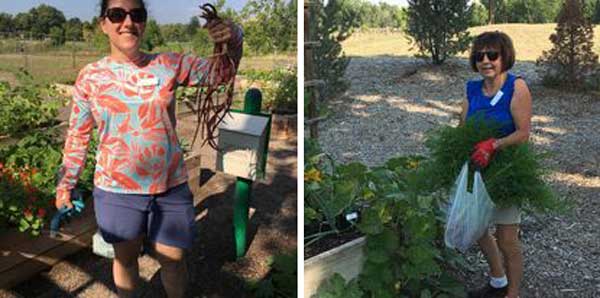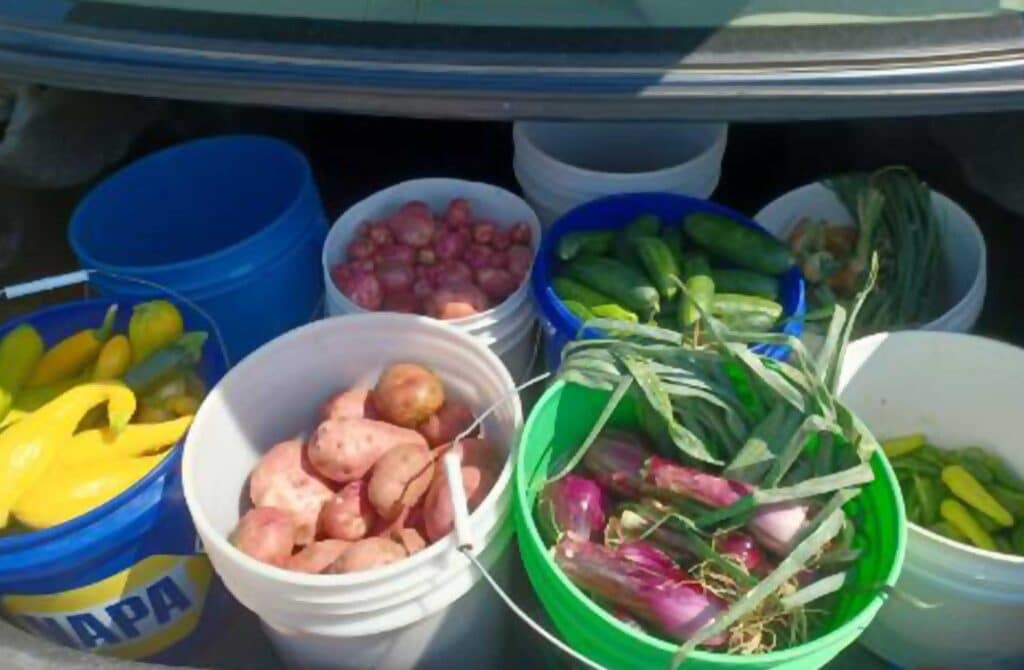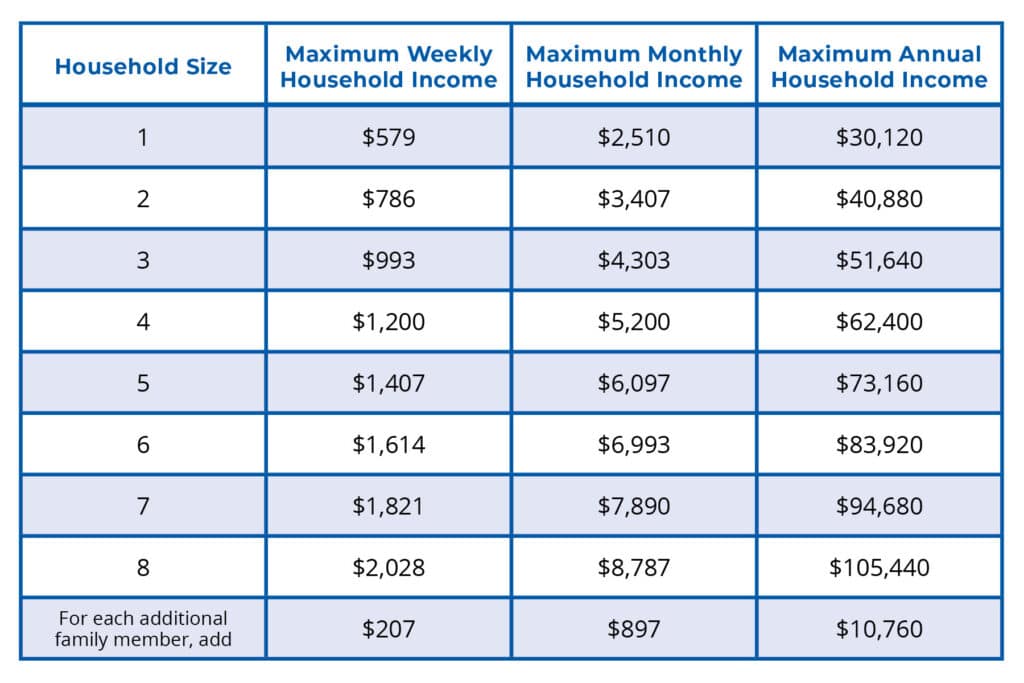Spring has sprung, the snow is melting in the Mountains, the flowers are blooming on the Front Range, birds are returning for the summer, and I may burst into song!
This month’s blog post is a fun one for me. It is about fresh garden produce donated to IFCS each summer and the special people who grow it. Even you can ‘grow an extra row’ to give to those in need!
Growing food has always been part of my life. My parents were avid gardeners. Like Hobbits, they grew everything. I grew up in the Bay Area of California and we had chickens, vegetables, fruit trees, berries, and even a persimmon tree out front. After moving to Colorado, my mother found it challenging to grow the same things at altitude and with a more arid climate. So she became a Master Gardener through the Colorado State University (CSU) Extension program. Her garden at 7800 feet of elevation was huge! My kids grew up helping each summer, and learned a lot from her about growing food. They would go pick buckets full of tomatoes, green beans, zucchini, squash and berries. One of the things Master Gardeners taught my mother was that soil improvement is one of the most important tools needed to garden in Colorado. Learning about soil and how to grow in such a short growing season is essential to garden here. But it can be done! Like Master Gardeners, my mother used to give away many pounds of fresh vegetables to our small community in Sedalia, Colorado.

Hudson Gardens Demonstration Garden, is one of several gardens run by CSU Extension Master Gardeners that donates freshly harvested produce to IFCS through the summer. For over 20 years, the Littleton-based garden has donated freshly harvested produce to the IFCS food pantry through their “Grow and Give” program, which addresses food insecurity in Colorado. This garden can be seen and experienced up-close if you have time. In fact, when I lived in Littleton, my husband and I used to bike on the South Platte River trail, which runs adjacent to the garden. We always enjoyed seeing the CSU Master Gardeners working tirelessly to grow all kinds of vegetables and berries, and even tending bee hives!
I met Judy Kranz, a Master Gardener who puts in hours growing and harvesting food to donate to those who are food insecure. It is a love of hers to garden while giving her time to help others.
Judy grew up in Denver and was inspired to learn more about gardening from her grandmother. Like many, she wanted to give a hand to a local food bank, and enrolled in the CSU Master Gardener program. She has been outside ever since! Each year, her garden donates 14,000 pounds!


Come visit the garden! Hudson Gardens is free admission, and you can meet the Master Gardeners, who will answer any gardening questions you might have. Stop by and see what they are growing and working on!
6115 S Santa Fe Littleton CO
Open Wednesdays from 8:30am – 10:30am May – September
Or visit hudsongardens.org for more information
 If you are interested in learning more about the Master Gardener Program visit their website: cmg.extension.colostate.edu
If you are interested in learning more about the Master Gardener Program visit their website: cmg.extension.colostate.edu
Please note, they only take new applications late Summer. They also have all kinds of resources and short online courses.
In addition to Master Gardeners, IFCS is the recipient of very fresh donations each summer and early fall from some enthusiastic local gardeners and farmers. It takes a community of growers to meet the demand for fresh, nutritious produce, and here in Colorado, we have that! One private gardener and her husband provide half an acre of fresh produce to IFCS every summer.

Sue Poet is a long-time donor of fresh produce to The Market @ IFCS. She was born in Colorado and was involved in some of the early IFCS fundraising activities, like the IFCS Walk of 26 miles with her church youth group. She also happened to attend the same church as IFCS founder Maida Navis.
After she married, Sue moved away for 25 years before returning to Colorado 20 years ago. She has been gardening ever since!
She inherited her parents’ farm, and with her husband’s farming background, they decided to do something good with the land. Giving back to the community was, and is her goal. She started a large garden, growing everything from root vegetables, peas and beans, leafy greens, cauliflower, peppers and even corn. They’ve also expanded to a perennial garden of asparagus and raspberries.
Sue keeps The Market participants in mind when donating. She tries to time deliveries so fresh veggies reach the participant shopping basket in a timely manner. She doesn’t want them to sit over the weekend getting old. Sue also said deciding what to grow each year to get the maximum benefit from it can be challenging. She wants to make sure the vegetables will be eaten! Also, things like the weather and pests such as bugs, rabbits, prairie dogs and elk create issues. One year, they had a whole herd of elk come through! Afterward, they installed an electric fence, which has proven its worth over and over.
Sue and her husband are already planning for the coming summer, and have a seed garden started in their home to give the seedlings a head start. They look forward to regular volunteer gardeners helping them plant, weed, and harvest their life-giving garden each year. She said volunteers harvesting corn is a big help!
They also use the Fresh Food Connect app which is available in the app store. This app can be used to schedule and connect with IFCS to donate any “extra row” that is grown. If you are an interested gardener with extra produce, check out this app to find a place to donate.
Thank you so much to both gardeners, Judy and Sue, for telling us so much about how they give back to community and share with people who need fresh food. It is inspiring and makes me want to go outside and grow something, like my mother did so many years ago.

Kathryn Adams is a Nurse Freelance Writer who started out her career as a Firefighter EMT-B then RN and has transitioned to professional writing. She started volunteering with IFCS in 2018 because she has a passion to help others. When she isn’t writing she enjoys hiking, yoga, skiing, and traveling. She lives with her husband, dog and kitty in the Colorado Mountains.


